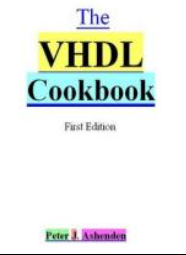- Регистрация
- 27 Авг 2018
- Сообщения
- 39,646
- Реакции
- 616,625
- Тема Автор Вы автор данного материала? |
- #1

This book has become a standard in the industry for learning the features of VHDL and using it to verify hardware designs.
The book begins with the basics of VHDL, which, like any software language, has keywords, operators, flow control statements, and programming conventions. Next, the author introduces his first case study - a "pipelined multiplier accumulator," which simulates a CPU register. He then moves on to more complicated models, such as a design for a complete CPU (the DLX processor, which is used as a model for educating future CPU designers). More advanced aspects of VHDL follow, including guard signals, abstract data types, and even file I/O. A final case study (for a "queuing network") puts these components into practice. The book closes with a discussion of "synthesizers" - additional software tools that convert a VHDL specification into silicon--and how these tools impose design limits. The appendices include Institute of Electrical and Electronics Engineers (IEEE) enhancements to VHDL, which have increased the design language's power. Although most of us won't ever need to design our own integrated circuit, this book shows how it's done. Engineering students who need to master VHDL during a semester-length course, will find Ashenden's guide to be indispensable - and written in an accessible style rarely found in engineering texts.
INFORMATION PAGE:
DOWNLOAD:



